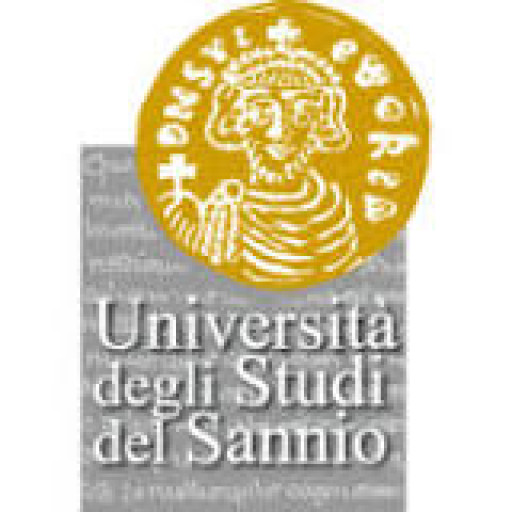The Master’s degree program in European Animal Breeding and Genetics at the Norwegian University of Life Sciences offers a comprehensive education in the scientific principles and practical techniques necessary for advancing breeding strategies and genetic improvement of farm animals. This interdisciplinary program is designed to equip students with a thorough understanding of genetics, genomics, statistical models, and data analysis methods crucial for optimizing productivity, health, and welfare in livestock populations. The curriculum combines theoretical coursework with hands-on practical training, enabling students to develop skills in designing breeding programs, analyzing genetic data, and applying innovative technologies such as genome selection and marker-assisted breeding. Throughout the program, students gain insight into the ethical, economic, and environmental considerations surrounding animal breeding, preparing them for research, industry, or policy roles. The program emphasizes international perspectives, exposing students to diverse breeding practices across Europe and globally. Collaboration with industry partners and research institutions provides valuable real-world experience and opportunities for networking. Graduates of this program are well-positioned to contribute to sustainable livestock production, improve genetic resources, and support the development of new breeding tools and strategies. The program, offered in English, combines lectures, seminars, laboratory work, and field projects, fostering critical thinking and innovative problem-solving. With strong links to ongoing research at the university, students have access to cutting-edge resources and expertise in animal genetics. Upon completing this Master’s degree, students will possess advanced knowledge and practical skills essential for leading initiatives in animal breeding programs, genetic research, and policy-making, ensuring the advancement of sustainable and ethical livestock management practices worldwide.
The European Animal Breeding and Genetics master's degree program at the Norwegian University of Life Sciences offers an in-depth education aimed at developing expertise in the genetic improvement of farm animals. The program combines theoretical knowledge with practical applications, preparing students for innovative research and development roles within the field of animal breeding. Throughout the course, students will explore the principles of genetics, genomics, and quantitative genetics, alongside advanced statistical and computational methods necessary to analyze complex genetic data. Emphasis is placed on understanding the genetic basis of desirable traits, designing effective breeding programs, and implementing sustainable and ethical breeding strategies.
Students will engage with cutting-edge topics such as molecular genetics, genome editing, and bioinformatics, equipping them with the skills needed to interpret genetic information at the genome level. The curriculum also covers population genetics, selection methods, and genetic evaluation to optimize breeding decisions. Practical training includes laboratory work, data analysis exercises, and field projects, enabling students to acquire hands-on experience with current technologies in animal genomics.
The program fosters international collaboration and encourages students to participate in research projects that address global challenges related to food security, animal welfare, and environmental sustainability. Students will have the opportunity to learn from leading experts in the field, access modern research facilities, and collaborate with industry partners. Graduates will be prepared for careers in academia, research institutions, breeding companies, and consultancy organizations involved in genetic improvement programs.
Overall, the European Animal Breeding and Genetics master’s program aims to produce highly qualified professionals who can contribute to the sustainable development of the livestock sector through innovative genetic research and its practical application. The program duration is typically two years, with a combination of coursework, research, and a master's thesis that provides students with the opportunity to apply their knowledge to real-world problems in animal genetics and breeding.
The financing of the European Animal Breeding and Genetics master's program at the Norwegian University of Life Sciences is primarily supported through a combination of government funding, student tuition fees, and additional scholarships. As a public university in Norway, the Norwegian University of Life Sciences benefits from state funding, which helps subsidize tuition fees for students. Norwegian and EU/EEA students generally pay relatively low tuition fees compared to private institutions, with these fees often covered entirely by government support. For international students outside the EU/EEA, tuition fees are higher, and students are encouraged to seek scholarships or external funding sources to finance their studies.
Students are advised to explore scholarship opportunities offered both by the university and external organizations. The Norwegian government and the university periodically provide scholarships and grants aimed at promoting higher education among international applicants. Additionally, the university may have specific funding options for students enrolled in specialized programs like Animal Breeding and Genetics, including research scholarships, project funding, and tuition fee waivers based on merit or financial need.
Students are also encouraged to consider financial support from national or international organizations related to agriculture or animal sciences. The university's administrative offices provide detailed information on various funding pathways, including student loans, grants, and work-study possibilities. In general, the financial model of the program aims to make higher education accessible, with the Norwegian government playing a central role in subsidizing costs, thereby reducing the burden on students and promoting international mobility and collaboration within the field of animal breeding and genetics.
The Master’s programme in European Animal Breeding and Genetics at the Norwegian University of Life Sciences (NMBU) is a specialized graduate degree designed for students interested in advanced methods and scientific knowledge related to breeding and genetics of farm animals. The programme aims to provide students with comprehensive skills in the analysis of genetic data, selection strategies, and sustainable breeding practices, which are essential for improving livestock productivity, health, and welfare. The curriculum combines theoretical knowledge with practical applications, including statistical and computational methods used in modern genetics and breeding programs. Graduates of this programme will be equipped to address challenges in animal breeding industries, contribute to research and development, and implement sustainable breeding strategies that consider ethical, environmental, and economic factors. The programme typically spans two years for full-time students and includes coursework, seminars, and a research project or thesis. Students have opportunities to collaborate with industry partners and research institutions, enhancing their practical understanding and employability. The programme emphasizes a multidisciplinary approach, integrating genetics, animal husbandry, bioinformatics, and statistics. Entry requirements generally include a relevant bachelor’s degree, proficiency in English, and other criteria specified by NMBU. Graduates of this programme may find employment in breeding companies, research institutions, government agencies, and the broader agricultural sector, contributing to innovation and sustainability in animal production systems.








